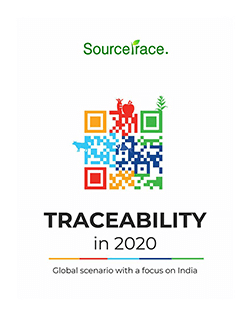Seeds of Change: Embracing EUDR for a Sustainable Agricultural Evolution

In an era focused on sustainable agriculture, the European Union’s Deforestation Regulation (EUDR) aims to promote environmentally responsible practices by curbing deforestation. This regulation is crucial for the agri-food sector, demanding stringent compliance, particularly in product traceability. The role of advanced technology becomes essential in meeting these requirements, offering solutions to ensure sustainable and eco-friendly practices in agriculture. This blog provides an overview of EUDR, highlighting its significance and the broad impact it has on the agricultural industry, with a brief mention of how technology can support compliance.
Understanding EUDR Compliance
The European Union’s Deforestation Regulation (EUDR) marks a significant step in global environmental efforts, particularly in the agricultural sector. Its primary goal is to prevent the import and trade of commodities linked to deforestation and forest degradation. This regulation pertains to essential products such as beef, cocoa, coffee, palm oil, soy, wood, and cocoa, guaranteeing that they are not obtained from land deforested after 2020.Compliance requires that these products adhere to the legal frameworks of their origin countries and come with a due diligence statement, including precise geolocation data of the production sites. This stringent approach reflects a growing consciousness towards environmental sustainability, where every stakeholder in the value chain must demonstrate accountability for their sourcing practices. The EUDR not only enforces legal compliance but also promotes responsible and sustainable agricultural methods globally.
EUDR for Sustainable Agriculture
The European Union’s Deforestation Regulation (EUDR) is a significant step towards sustainable agriculture, focusing on preventing deforestation and ensuring environmentally responsible practices within the agri-food sector. Compliance with EUDR demands transparency and traceability in the agricultural supply chain, making the adoption of advanced digital solutions imperative. These technologies play a crucial role in tracking and managing agricultural data, ensuring products are sustainably sourced. This section of the blog highlights the importance of integrating such technologies to meet EUDR’s stringent requirements and promote sustainable farming practices.
Embracing Digital Solutions for EUDR Compliance
To achieve EUDR compliance, embracing digital solutions is essential. Technologies such as remote sensing, satellite imagery, and advanced data management are pivotal in ensuring products comply with EUDR’s deforestation-free requirements. These solutions enable precise tracking and monitoring of agricultural practices, ensuring alignment with environmental mandates. This approach not only aids in sustainable sourcing but also streamlines the compliance process, making it more transparent and efficient for stakeholders within the agricultural sector.
Showcasing Sustainable Successes in Agriculture
In the realm of sustainable agriculture, real-world success stories provide compelling evidence of the positive impact of EUDR compliance. For instance, a cocoa farm in the Ivory Coast successfully transitioned to EUDR-compliant practices by adopting agroforestry systems, which not only preserved local forests but also increased biodiversity. This shift not only met EUDR standards but also enhanced the farm’s productivity and resilience to climate change. Similarly, a coffee cooperative in Colombia embraced EUDR by implementing traceability systems and sustainable farming techniques, such as shade-grown coffee, which reduced deforestation and improved soil health. These case studies exemplify how adherence to EUDR can drive meaningful change in agricultural practices, leading to environmental conservation and sustainable livelihoods for farmers.
Understanding EUDR’s Crop and Compliance Criteria
The European Union’s Deforestation Regulation (EUDR) targets specific commodities linked to deforestation, including crops such as soy, palm oil, beef, wood, cocoa, and coffee. These commodities must adhere to strict guidelines ensuring they are not sourced from land deforested after December 31, 2020. The regulation emphasizes traceability and due diligence, requiring detailed geolocation data for each product to verify compliance, aiming to promote sustainable agricultural practices and protect forest ecosystems. For detailed specifications and more information on EUDR, it’s recommended to consult official EU documentation or specialized agricultural compliance resources.
EUDR beyond compliance
The EUDR extends beyond mere compliance to foster a broader understanding of sustainable agriculture’s environmental impacts. By setting forth detailed criteria for crops, it encourages stakeholders to adopt practices that ensure the conservation of biodiversity and ecosystems. Furthermore, the regulation serves as a catalyst for innovation in agricultural techniques, pushing for the adoption of more eco-friendly and efficient farming methods. This holistic approach not only aligns with global sustainability goals but also promotes a more responsible and ethical global agricultural marketplace. To further align with EUDR’s objectives, the regulation also scrutinizes the supply chain processes, ensuring that each step, from cultivation to market, adheres to environmental standards. This comprehensive oversight requires a collaborative effort among farmers, traders, and policymakers to foster transparency and accountability in agricultural practices. Additionally, the EUDR’s dynamic framework is designed to adapt to evolving environmental insights, allowing for updates and refinements in response to new scientific data and ecological needs. This adaptability ensures the regulation remains effective in its mission to combat deforestation and promote sustainable agriculture.
Challenges and Opportunities
The journey towards EUDR compliance and sustainable agriculture presents both challenges and opportunities. For farmers and companies, adapting to these new regulations can be complex, involving significant changes in sourcing and production practices. This transition may require new investments in technology and training, as well as navigating the complexities of legal compliance across different countries. However, these challenges also open doors to numerous opportunities. Compliance with EUDR can lead to more sustainable and ethical farming practices, improved brand reputation, and access to new markets that value environmental responsibility. For SourceTrace, this is an opportunity to further embed their technology in the agricultural sector, offering solutions that not only ensure compliance but also promote overall sustainability and efficiency in the agri-food value chain.
Navigating Towards a Greener Future in Agriculture
The trajectory of sustainable farming, particularly under EUDR guidelines, is set for a significant evolution. The adoption of digital technologies in agriculture is anticipated to grow, fostering a landscape where compliance, efficiency, and sustainability are intertwined. This shift towards more eco-friendly practices, supported by technological advancements, promises a more sustainable and accountable agricultural future.
Conclusion
In wrapping up, the path to EUDR compliance, anchored in sustainable practices, presents both hurdles and triumphs. The agricultural landscape is on the brink of a significant transformation, driven by the synergy of technological innovation and environmental stewardship. This movement towards a more sustainable, transparent, and efficient future in farming is a testament to the commitment of the agri-food sector to a greener, more responsible ethos.
SourceTrace's software solutions have been deployed across 37 countries and 4 continents already. We are on a mission to make agriculture and food systems more sustainable. Get in touch and we will extend our expertise and commitment to you.
Request a Demo


